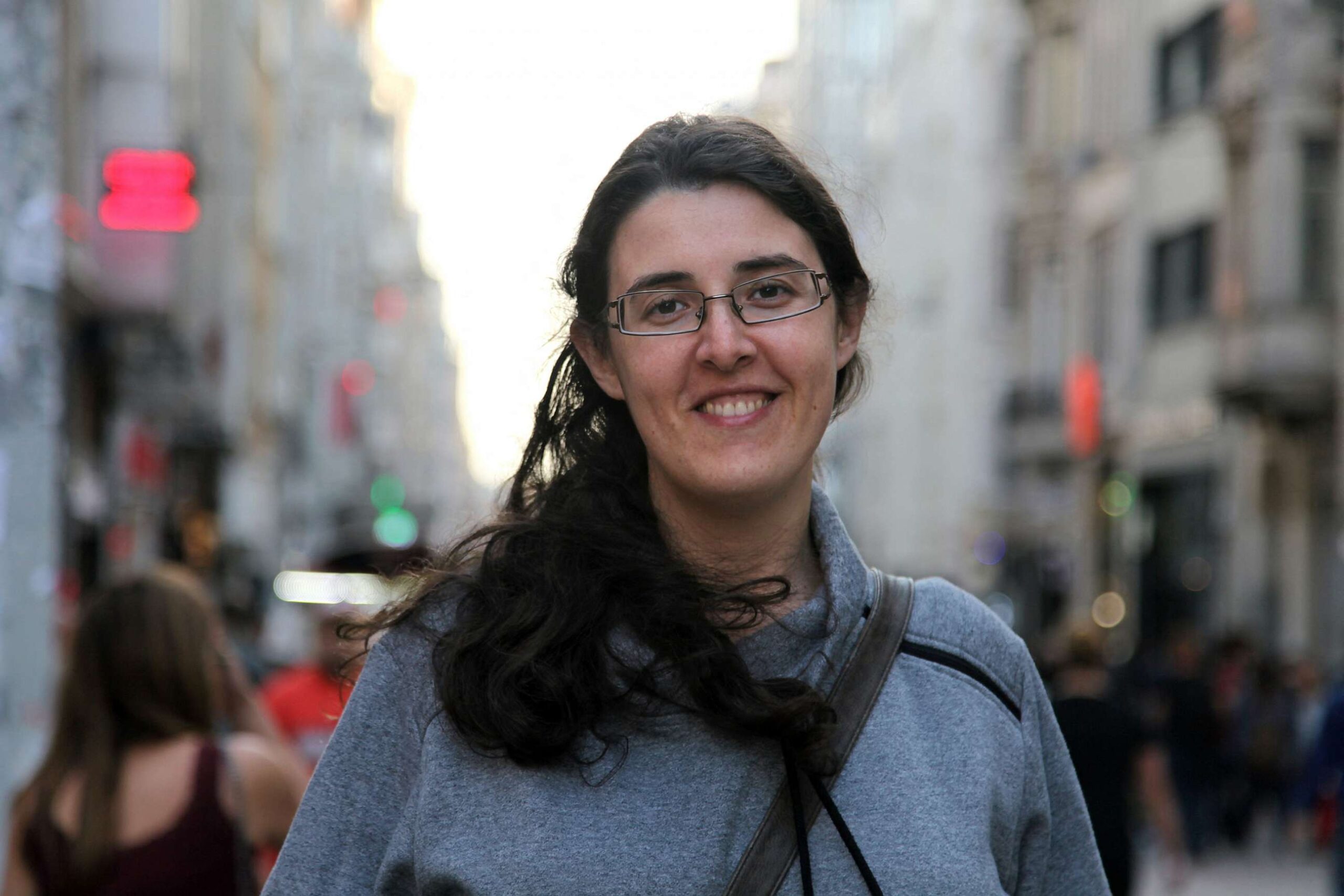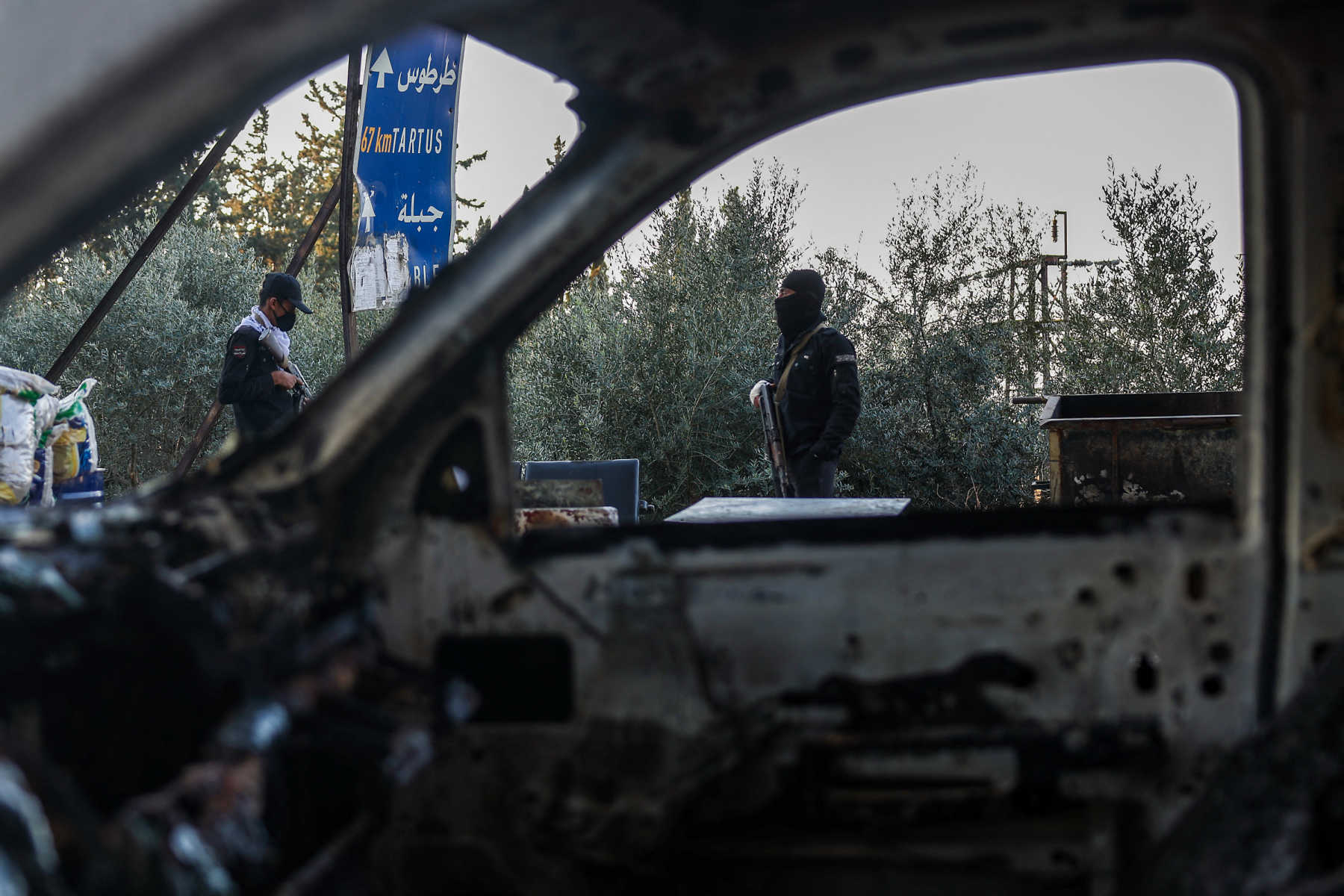Mairav Zonszein is the Senior Analyst on Israel-Palestine at the International Crisis Group.
عربي
In the past few weeks, Israeli-occupied East Jerusalem has been the site of several violent attacks in which Palestinians, many of them teenagers, have gone out to stab Israelis, and then often paid for it with their lives. Last month, a Palestinian, just 16 years old, stabbed two border police officers in Jerusalem's Old City, and was fatally shot. On Dec. 4, a 25-year-old Palestinian man stabbed an orthodox Israeli near Damascus Gate, then apparently tried to stab two Israeli border police officers, who subsequently shot him several times, even after he was down on the ground and no longer appeared to pose a threat. Police denied him medical attention as he lay dying. Several left-wing Knesset members condemned the death as an execution. The two border police officers were briefly questioned about their conduct, but otherwise received the full backing of Israel's police, the security establishment and the prime minister, Naftali Bennett.
Yet the intense focus on the particular details of this attack near Damascus Gate by both the media in Israel and Knesset members overlooks the political context in which such acts take place. In another incident a few days later, a Palestinian girl, just 14 years old, stabbed and lightly wounded an Israeli woman, her neighbor, in the East Jerusalem neighborhood of Sheikh Jarrah; she was later apprehended by Israeli police. She is a daughter of one of the many Palestinian families that have been under threat of eviction in Sheikh Jarrah. But in Israeli media, she is simply "a terrorist." As one Israeli journalist tweeted critically about this kind of coverage, "the stabbing didn't emerge in a pastoral setting."
The monochromatic framing of these violent incidents as yet more terrorist attacks against innocent Israelis, not surprisingly, has prompted quick calls for heightened security and further crackdowns on Palestinians. One Israeli minister called for body-checking Palestinians entering the Old City in order to create "sterile" areas. But no matter how visibly reprehensible stabbing civilians is, these are incidental spasms of violence that are nearly impossible to predict or prevent, from a people pushed up against literal and figurative walls. Less visible in Israeli public debate is how violence inflicted on Palestinians is institutionalized, especially when it comes from people in uniform. It manifests itself daily in myriad routine and mundane ways that do not get attention on the evening news, yet are embedded in every aspect of Israeli policy—from housing and education to waste collection, culture, freedom of expression and assembly, and of course, political representation. That policy of dispossession is predicated on the overall and longstanding strategy of acquiring maximum land with a minimum of Palestinians, of replacing Palestinian homes with Israeli homes, of depriving another people of their freedom.
No matter how visibly reprehensible stabbing civilians is, these are incidental spasms of violence that are nearly impossible to predict or prevent, from a people pushed up against literal and figurative walls.
- Mairav Zonszein
Israelis know, of course, that occupied East Jerusalem was at the epicenter of the crisis in May, with the threat of mass evictions of Palestinians in Sheikh Jarrah drawing international attention and pressure. But they may not be aware of everything that transpired on the ground. The planned expulsions in Sheikh Jarrah coincided with Ramadan, which traditionally draws large numbers of Palestinians from Jerusalem and the West Bank to the Holy Esplanade, known to Jews as the Temple Mount and Palestinians as al-Haram al-Sharif. Israeli police restricted access to the Muslim holy sites and met protesters with brutality at Damascus Gate and the al-Aqsa Mosque—where, in 2000, the Second Intifada began, after then-Israeli Prime Minister Ariel Sharon made a deliberately provocative visit to the site. Last spring, far-right Israeli nationalist provocations added to the volatile mix, while Palestinians were already furious over the Palestinian Authority's cancellation of elections, professedly because Israel would prevent Palestinians in East Jerusalem from voting.
But the policies of repression are all still ongoing months later, even under a post-Netanyahu Israeli government that claims it wants stability and whose ministers have met with officials from the Palestinian Authority—including, for the first time in seven years, President Mahmoud Abbas. Nevertheless, Palestinian residents in Sheikh Jarrah still face eviction today, as do families in the nearby neighborhood of Silwan. The Jerusalem municipality has announced new settlement plans in East Jerusalem. And house demolitions and police raids continue in Palestinian neighborhoods like at-Tur and Issawiya.
East Jerusalem has long been a central flashpoint of tensions and violence in the Israeli-Palestinian conflict. Palestinian residents make up 40 percent of Jerusalem's population but are not citizens of the state that rules over them. They live in an unfathomably challenging in-between world—different from Palestinians inside Israel's 1948 borders who, even though they are treated as second-class citizens, have certain rights, but also unlike Palestinians in the West Bank and Gaza, who are isolated and deprived of all rights under Israeli control. East Jerusalem, unlike other parts of Palestine, is also where Palestinians have zero representation or organized leadership, since Israel has barred the Palestinian Authority from operating there.
Most Israeli media and much of the public do not consider Israel's very annexation of East Jerusalem as the source of continuous Palestinian dispossession—and thus a trigger for resistance from Palestinian residents.
- Mairav Zonszein
The new Israeli government, which includes several parties that claim to support the establishment of a Palestinian state as part of a two-state solution, operates as if Jerusalem has long been taken "off the table" and thinks it doesn't have to pay a price for it. (Former U.S. President Donald Trump boasted that he had taken "Jerusalem off the table" in negotiations by unilaterally recognizing the city as Israel's capital and moving the U.S. Embassy there from Tel Aviv.) Under Bennett's new government, like those before it, there is no recognition or discussion of Palestinian claims to national self-determination in East Jerusalem, or even their rights as residents to have master plans for construction that take their communities' needs into account. More broadly, most Israeli media and much of the public do not consider Israel's very annexation of East Jerusalem in 1967, which no other country in the world has recognized, as the source of continuous Palestinian dispossession and expulsion—and thus a trigger for resistance from Palestinian residents.
Since taking office, President Joe Biden has not taken action to undo the damage of Trump's presidency, which upended decades of American policy with its recognition of Jerusalem as Israel's capital. After moving the U.S. Embassy to Jerusalem, the Trump administration subsequently folded the existing U.S. consulate in East Jerusalem into it, effectively downgrading American representation for Palestinians in the city. Biden has said he would reopen a consulate for Palestinians in East Jerusalem, but Israel has presented a united front against the move, making that an increasingly unattainable objective with every passing day. Biden has not reaffirmed what so many American presidents have stated explicitly before him: that East Jerusalem will be the capital of a future independent Palestinian state. With an Israeli government intent on maintaining policies in line with Israel's far-right dream of a "Greater Israel," it is hard not to see the Biden administration's inaction as implicit acceptance of Israel's annexation of East Jerusalem.
The Palestinians of East Jerusalem feel abandoned and realize they must fend for themselves. When Palestinian teenagers get up in the morning and decide to go out to stab Israelis on the streets of the country's "undivided" capital, knowing full well that they will likely end up dead and that their families could pay a very high price too, the Israeli response cannot just be to beef up security forces and continue business as usual. That may seem like an acceptable solution to Israelis, especially when their government frames it as the necessary cost of Israel's control of East Jerusalem and ever-expanding settlement project. But Palestinians won't accede to an authority that treats them simply as "terrorists" and targets for eviction. Without a political process working toward the prospect of self-determination for Palestinians, and with dispossession and repression undiminished, conflict and violence will only intensify, especially in East Jerusalem. Only a serious overhaul of policy can change this volatile situation, but that can only come about if and when Israel faces a far greater challenge to its systems of domination, in the form of Palestinian mobilization and international pressure.
















![Security forces loyal to the interim Syrian government stand guard at a checkpoint previously held by supporters of deposed president Bashar al-Assad, in the town of Hmeimim, in the coastal province of Latakia, on March 11, 2025. Syria's new authorities announced on March 10, the end of an operation against loyalists of deposed president Bashar al-Assad, after a war monitor reported more than 1,000 civilians killed in the worst violence since his overthrow. The Syrian Observatory for Human Rights said the overwhelming majority of the 1,068 civilians killed since March 6, were members of the Alawite minority who were executed by the security forces or allied groups. (Photo by OMAR HAJ KADOUR / AFP) / “The erroneous mention[s] appearing in the metadata of this photo by OMAR HAJ KADOUR has been modified in AFP systems in the following manner: [Hmeimim] instead of [Ayn Shiqaq]. Please immediately remove the erroneous mention[s] from all your online services and delete it (them) from your servers. If you have been authorized by AFP to distribute it (them) to third parties, please ensure that the same actions are carried out by them. Failure to promptly comply with these instructions will entail liability on your part for any continued or post notification usage. Therefore we thank you very much for all your attention and prompt action. We are sorry for the inconvenience this notification may cause and remain at your disposal for any further information you may require.”](https://dawnmena.org/wp-content/uploads/2025/04/syria-22039885951-350x250.jpg)










![Security forces loyal to the interim Syrian government stand guard at a checkpoint previously held by supporters of deposed president Bashar al-Assad, in the town of Hmeimim, in the coastal province of Latakia, on March 11, 2025. Syria's new authorities announced on March 10, the end of an operation against loyalists of deposed president Bashar al-Assad, after a war monitor reported more than 1,000 civilians killed in the worst violence since his overthrow. The Syrian Observatory for Human Rights said the overwhelming majority of the 1,068 civilians killed since March 6, were members of the Alawite minority who were executed by the security forces or allied groups. (Photo by OMAR HAJ KADOUR / AFP) / “The erroneous mention[s] appearing in the metadata of this photo by OMAR HAJ KADOUR has been modified in AFP systems in the following manner: [Hmeimim] instead of [Ayn Shiqaq]. Please immediately remove the erroneous mention[s] from all your online services and delete it (them) from your servers. If you have been authorized by AFP to distribute it (them) to third parties, please ensure that the same actions are carried out by them. Failure to promptly comply with these instructions will entail liability on your part for any continued or post notification usage. Therefore we thank you very much for all your attention and prompt action. We are sorry for the inconvenience this notification may cause and remain at your disposal for any further information you may require.”](https://dawnmena.org/wp-content/uploads/2025/04/syria-22039885951-360x180.jpg)









